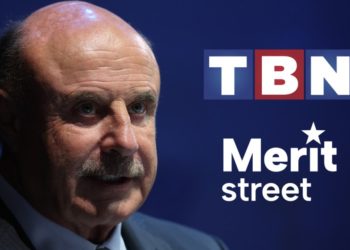After recent incursions by Russian drones over Poland and Romania, the Polish government has revived talk of establishing a no-fly zone over Ukraine to protect against further Russian intrusions.
“If Ukraine were to ask us” to shoot down drones “over its territory, that would be advantageous for us,” Radoslaw Sikorski, Poland’s foreign minister, said in an interview with a German newspaper published on Monday. He added that the decision must be made with NATO and European Union partners.
Three and a half years ago, Western allies rejected a plea by President Volodymyr Zelensky of Ukraine for a no-fly zone over his country. At the time, NATO leaders said they feared that instituting such a zone risked escalating the war and could draw Western militaries into conflict with Russia.
The nature of the Russian threat has changed, as the Kremlin now relies on mass production of long-range drones instead of fighter jets streaking through the skies. But the political challenges for a NATO-enforced no-fly zone remain significant, analysts say, and technological advances since 2022 have also made it a difficult proposition militarily.
Michael R. Carpenter, a former U.S. ambassador to the Organization for Security and Cooperation in Europe, said the Pentagon was unlikely to support a Western-imposed no-fly zone because that would mean “this goes from a proxy war to a direct confrontation.”
If Ukraine’s Western allies did put themselves on the hook for helping protect Ukrainian skies, it would present a dilemma. If they failed to stop Russian drones, it would expose NATO’s impotence. And if they intercepted them with costly missiles, their only real option with their current defenses, it would rapidly deplete arsenals.
Justin Bronk, a senior research fellow who studies air power and technology at the Royal United Services Institute in London, warned that Europe alone would struggle to stop the swarms of drones that Russia now employs.
“Western air forces, especially European ones, are not equipped to sustainably shoot down such threats,” Mr. Bronk wrote by email.
The NATO response to last week’s wave of Russian drones over Poland showed the challenge. Polish and Dutch fighter jets armed with missiles costing well over $1 million each were dispatched to shoot down several decoy drones, known as Gerberas, costing just tens of thousands of dollars apiece or less.
It was the first time NATO directly fired on Russian assets, but the strategy is not sustainable, Mr. Bronk said. Even ignoring the cost, he noted, there simply are not enough missiles in production or stockpiles to intercept the drones Russia could flood into any no-fly zone.
The only military in the world to face mass drone assaults is Ukraine. It has developed a layered defense that includes mobile fire groups armed with missiles and heavy guns, fighter jets, interceptor drones and electronic warfare.
The work for those tasked with answering Russia’s onslaughts is taxing.
“I just sat down — honestly, I’m completely wrecked,” said Max, a helicopter pilot and crew commander reached by phone on Monday. He asked that only his first name be used in accordance with military protocol.
“Nights are exhausting,” he said. “Our guys are flying almost 24 hours straight, with only short breaks for refueling. They’re just totally drained.”
A few hours later, a wave of at least 113 Russian drones crossed into Ukraine. At least 89 were shot down or disabled, and strikes were recorded at 22 locations, according to the Ukrainian Air Force. At least seven people were killed the authorities said.
Since the beginning of September, more than 3,500 drones of various types and nearly 190 missiles, along with more than 2,500 aerial bombs, have been launched across Ukraine, Mr. Zelensky said in a statement on Tuesday.
Yurii Ihnat, the head of communications for the Ukrainian Air Force, said specialists were prepared to train European allies in this new form of warfare but noted that “this experience was gained through blood.”
Poland’s defense ministry said in a statement that it expected joint training to take place on Polish territory soon.
On Friday, NATO announced what it called Operation Eastern Sentry to reinforce its eastern flank, with Britain sending Typhoon jets to Poland.
To be more effective, Mr. Bronk, the analyst, said, European fighter jets must integrate the Advanced Precision Kill Weapon System, which uses low-cost laser-guided rockets developed by BAE Systems to take down drones.
Paul Smith, an executive at BAE, said at a defense exhibition in London last week that the company was working to enable the system, which is used by U.S. jets, on European fighters.
Over the years, Ukraine has acquired a range of Western air-defense systems that would simplify the process of integration. But Western political hesitance remains strong. Romania, which suffered its own Russian drone incursion over the weekend, said on Tuesday it did not yet support a no-fly zone.
Junior Sgt. Oleksandr Musiienko, a defense analyst now serving in Ukraine’s military, said he hoped Russia’s aerial incursions into Eastern Europe would change Western governments’ mind-set.
“They can see the threat from Russia is closer than they think,” he said.
Lara Jakes contributed reporting from Rome.
Marc Santora has been reporting from Ukraine since the beginning of the war with Russia. He was previously based in London as an international news editor focused on breaking news events and earlier the bureau chief for East and Central Europe, based in Warsaw. He has also reported extensively from Iraq and Africa.
The post A No-Fly Zone Over Ukraine? The Challenges for the West Would Be Huge. appeared first on New York Times.




